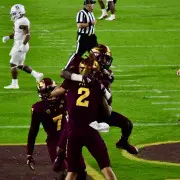Pressure Point: Dolphins, Tagovailoa have historic turnaround within reach
The never-enough-crowd that is relentlessly sifting through Tua Tagovailoa’s 84-percent completion rate over the past two weeks for any nit to pick with the second-year quarterback is absolutely missing the point of what is transpiring with the Miami Dolphins.
Something remarkable is taking shape in their rise from a 1-7 half-season debacle in a potentially historic turnaround, now at four consecutive wins and more within reach.
After Sunday’s 33-10 dismantling of the Carolina Panthers, it is unquestionably realistic that the Dolphins could run through the next four middling opponents — Giants, Saints, Jets, Titans (sans Derrick Henry) — to set up a season-ending showdown with the Patriots.
No NFL team has made the playoffs after a 1-7 start. In 2015, the Chiefs were 1-5 and won 10 in a row to grab a wild-card spot.
Playoff format favorable
Considering there are three wild cards in each conference this season, there could be a lot at stake in that Jan. 9 encounter at Hard Rock Stadium if the Dolphins can get there at 9-7.
Too bad there are so many kill joys who dwell on whatever they wish Tagovailoa was — specifically Justin Herbert — rather than recognizing what he is becoming, which is looking better each week.
They brush off his performance against the Panthers — 27-of-31 (87.1 percent) for 230 yards and a passer rating of 108.5 — because most of the throws were short shots underneath the coverage. Some of the critics think passer rating is a bogus stat, so Tua gets no credit for that.
They can’t point to an ill-served interception this week, because Tua didn’t throw any.
Tau to Waddle winning combo
He did throw for a touchdown, and in my view it was his most impressive throw Sunday, an absolute dart into a tight spot to Jaylen Waddle for a 9-yard touchdown on third down to put Miami ahead to stay.
The Panthers aren’t a very good team, but they did come into Sunday with the top-rated passing defense in the league.
Most significant is the connection Tagovailoa is building with Waddle, who has 77 catches and is on pace for 109, which would be an NFL rookie record. While his season average is just under 10 yards per reception, Waddle averaged 15.2 yards against Carolina with nine catches for 137 yards.
waddle on his TD and tua's TIGHT window https://t.co/WtEEGyjpdp pic.twitter.com/bXUPysnnj6
— josh houtz (@houtz) November 28, 2021
Waddle said he’s been following the example of his former Alabama teammate.
“I think Tua grew as a player. I’m trying to grow as a player,” Waddle said. “Just learning what he do and his new knowledge and me going out there every week and learning something new and just putting it all together.”
Amazing stat: Since Tua returned from his rib injury in Week 6, Waddle has 50 receptions, most in the league during that span and second most in receiving yards with 528.
Dolphins still can’t run
Look, a lot of the Dolphins’ passing game is compensating for a lack of an effective running game. They averaged only 2.8 yards a carry Sunday, though newcomer Phillip Lindsay looked like a useful pickup in his first Dolphins test with 42 yards on 12 carries.
every carry (i think) from phillip lindsay's @miamidolphins debut (12 carries for 42 yards + a nice block) #finsup pic.twitter.com/50VH8J5bSe
— josh houtz (@houtz) November 29, 2021
If your line can’t open holes and your running backs are limited, short passes are a logical option. Still, you need a quarterback to distribute the ball, like a good point guard, to a variety of receivers on time in space to keep moving the chains.
In three games since returning from his finger injury, Tagovailoa has done that with surgical efficiency. Beginning with the relief effort in the win over the Ravens, he is 62 of 77 (81 percent) for 661 yards, with three touchdowns and that one crappy interception against the Jets.
The key takeaway from those three games is the combination of growth Tua has shown and the reemergence of the Miami defense has yielded three wins by a combined margin of 42 points.
But let’s knock him because he didn’t hit Mack Hollins in stride on that long pass against the Jets that, oh by the way, did result in a 65-yard touchdown. And never mind that he’s operating without starting wide receivers DeVante Parker and Will Fuller.
****
Loading...
****
Tua thriving despite haters
Can’t recall a less objectionable player who has been as maligned as Tua, especially considering he wasn’t terrible even as he was going through growing pains at the toughest position in the most demanding sport.
Nonetheless, the hate continues to flow because, well, the Dolphins could have had Justin Herbert, who has the big arm and must certainly walk on water.
The possibility was that Herbert and Tagovailoa were both going to be very good NFL quarterbacks. We’re starting to see it now with Tua.
Tua can't win big games:
8-13 for 158 yards and a 104 rating in one half in win vs Ravens
Now do that for a full game
27-33 for 273 yards 2TD & 1 INT in win vs Jets
Now do that against a good D w/ no INTS
26-31 for 230 yards 1 TD & 0INT in win vs Panthers
Do it blindfolded
— Sauces Confirm (@SaucesConfirm) November 28, 2021
To me, the bigger talking point of this strange Dolphins season should be: Where was the defense we’re seeing the past few weeks during the 1-7 start?
This is the sort of freewheeling Flores defense that had a lot to do with the 2020 team going 10-6. That was MIA through the first half of the season.
On Sunday, they had five sacks, three interceptions and drove Cam Newton to the bench.
Rookies bolster Dolphins defense
So what changed? Maybe in part the speech coach Brian Flores gave after the seventh consecutive loss about believing in his players lit a fire. More tangible is the impact of rookies Jaelan Phillips, who had three sacks against Carolina, and safety Jevon Holland, who had an interception.
.@MiamiDolphins @JJPhillips15 had a career afternoon while this #Dolphins Defense has had a lockdown month. They dug themselves a big hole but does anyone want to deal with this STORM in the #Nfl ?? #PhinsUp #BaldysBreakdowns pic.twitter.com/bWaY64NBcv
— Brian Baldinger (@BaldyNFL) November 29, 2021
Stuff happens in football, and it rarely follows a predictable course. The Dolphins opened with a win at New England that probably wouldn’t have gone their way without the late takeaway by Xavien Howard. Subsequently, Miami lost in overtime to the Raiders and on last-second field goals to the Jaguars and Falcons. So they weren’t getting blown out in many of the losses.
Teams evolve over the course of a season, upward or down. Lately it appears these Dolphins may be closer to the team they were expected to be. And Tua may turn out to be a competent, winning NFL quarterback after all.
The social media age has illuminated that people hate to wait for anything. This Dolphins team may just be the lesson that sometimes the wait is worth it.
Craig Davis has covered South Florida sports and teams, including the Dolphins, for four decades. Follow him on Twitter @CraigDavisRuns

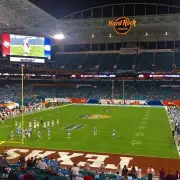


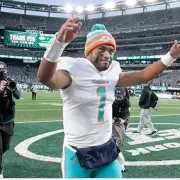
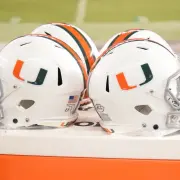




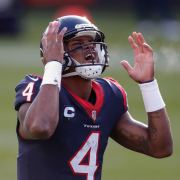
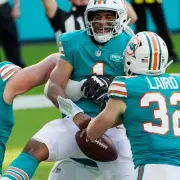
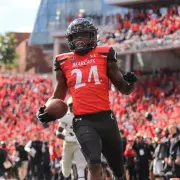
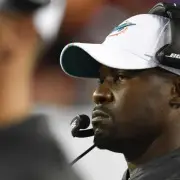
 :
:  : NFL app
: NFL app 